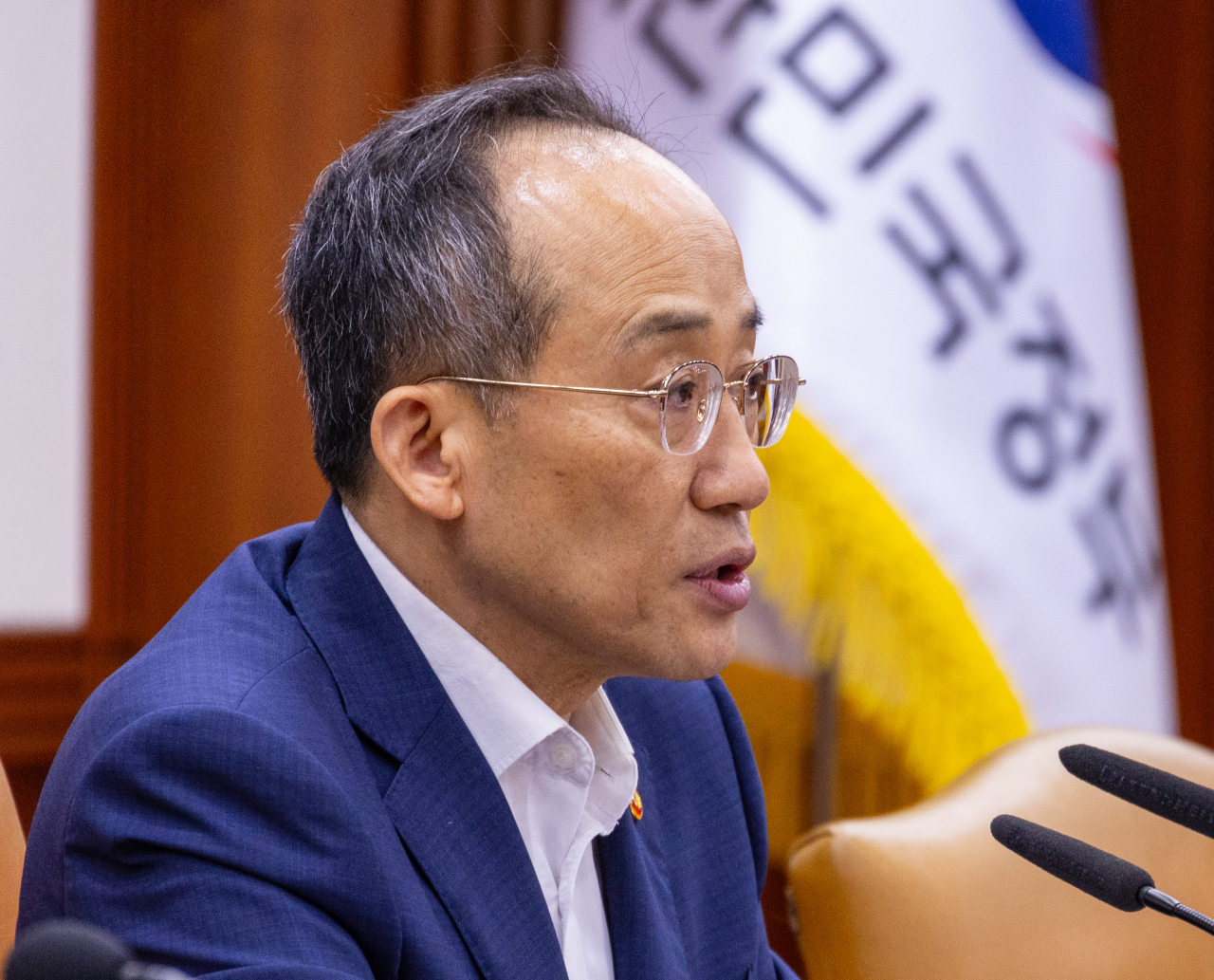S. Korea to monitor volatility in finance sector amid Fed's rate hike
By YonhapPublished : July 27, 2023 - 09:27

Finance Minister Choo Kyung-ho said Thursday he will closely monitor potential volatility in the financial sector following the latest US Federal Reserve rate hike, which pushed the gap between the two countries' key rates to an all-time high.
The Fed raised its benchmark lending rate by a quarter percentage point Wednesday, sending it to the highest level since 2001.
"The decision by the FOMC did not deviate from the market's expectations, with the global financial market remaining stable in general overnight," Choo said during an early morning meeting.
"But the government will continue to remain vigilant, as there are still uncertainties in the future monetary policies of the US and other major countries," he added.
The latest hike, meanwhile, sent the key rate to a range between 5.25 percent and 5.5 percent in the world's largest economy, with the gap between the allies now at an all-time high of 1.75-2.0 percentage points.
South Korea's central bank kept its benchmark rate frozen at 3.5 percent earlier this month.
A rate hike by countries with key currencies, such as the US, typically results in a depreciation of other currencies like the Korean won, as investors tend to seek out more lucrative investment opportunities.
In response to growing concerns about a potential capital outflow from Asia's No. 4 economy, the finance minister reassured that recent data indicates the South Korean market remains stable.
"Regarding the inflow and outflow of capital, as well as the foreign exchange market, it is widely recognized that they are influenced not only by the interest rate gap but also by the economic and financial conditions at home and abroad," Choo added.
He also emphasized that foreign investors remain confident over the South Korean economy despite such concerns.
"In spite of the outlook over a further expansion in the rate gap from home and abroad, South Korea has received foreign investment worth more than 22 trillion won, and the Korean won also remains stable in line with the value of other major currencies," Choo added.
He was referring to the foreign direct investment pledges made to South Korea over the January-June period, which advanced 54.2 percent on-year to reach a record high for any first-half period, reaching $17.09 billion.
The local currency also closed at 1,275 won against the greenback on Wednesday, advancing from 1,318 won tallied on June 30.
The finance minister, however, said the government and the central bank will continue to work together and implement a "contingency plan" if necessary.
Experts, meanwhile, say the additional monetary tightening by the Fed may give more pressure to the Bank of Korea to seek another rate hike as such a gap may lead to an outflow of foreign funds from the country.
The central bank delivered seven consecutive rate hikes from April 2022 to January 2023 before keeping it unchanged for four straight meetings.
The rate gap may also expand further down the road, as US Federal Reserve Chair Jerome Powell hinted that another rate hike in September is "certainly possible.
Others, however, expect the BOK to refrain from seeking additional hikes amid the prolonged economic uncertainties, along with a slump in the real estate project financing sector.
They also pointed out that South Korea has been showing signs of eased inflation. The country's consumer price growth slowed for the fifth straight month in June by advancing 2.7 percent, falling below 3 percent for the first time in 21 months. (Yonhap)



















![[Today’s K-pop] Treasure to publish magazine for debut anniversary](http://res.heraldm.com/phpwas/restmb_idxmake.php?idx=642&simg=/content/image/2024/07/26/20240726050551_0.jpg&u=)